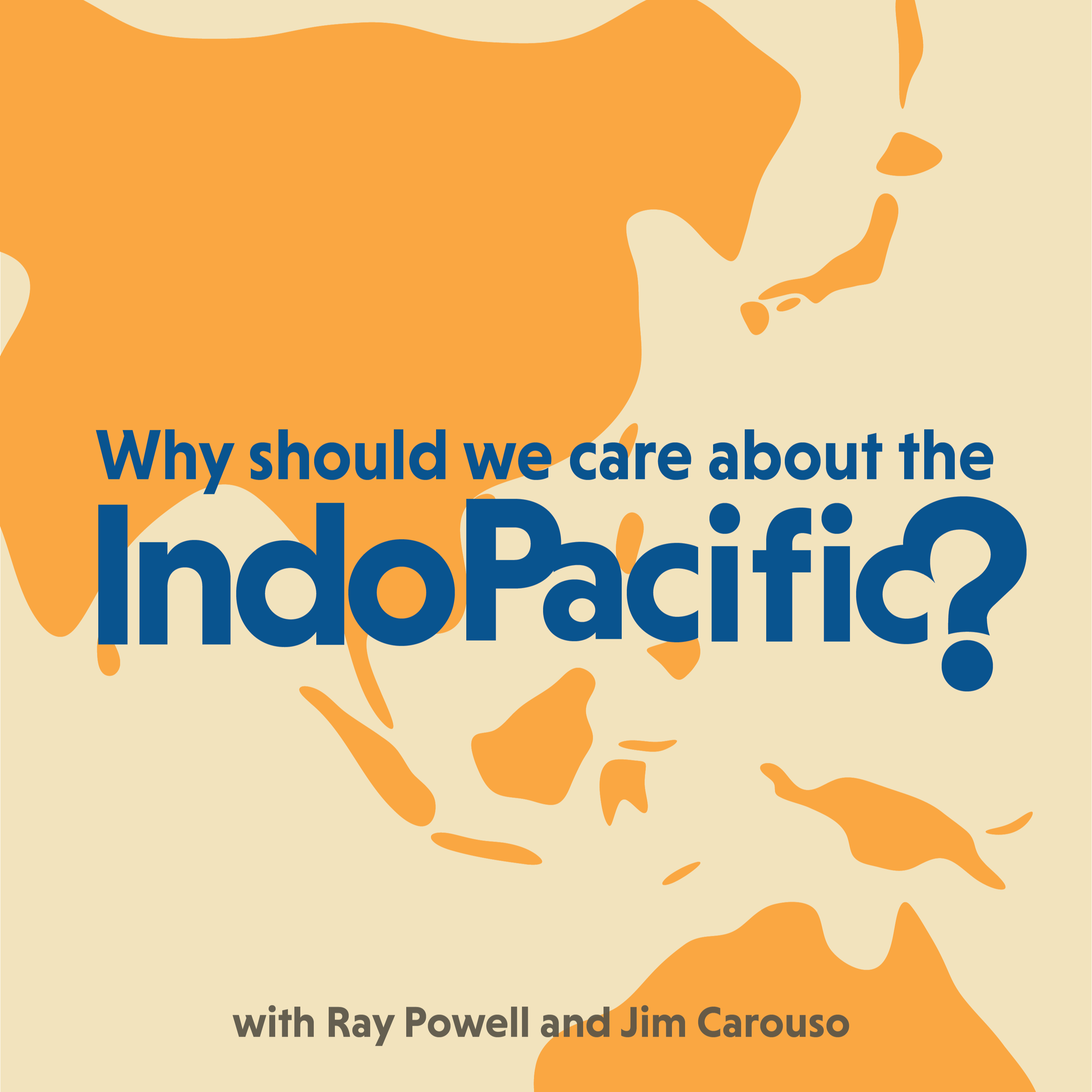
Why Should We Care About Techno-Nationalism in the Indo-Pacific? | with Alex Capri

Why Should We Care About the Indo-Pacific?
Deep Dive
Shownotes Transcript
In this episode, hosts Ray Powell and Jim Carouso explore the critical concept of techno-nationalism with expert Alex Capri), author of "Techno-Nationalism: How It's Reshaping Trade, Geopolitics and Society.")
Techno-nationalism represents the intersection of technology, national security, and economic power in the Fourth Industrial Revolution. Capri explains how nation-states are leveraging 12 key power-multiplier technologies--including semiconductors, artificial intelligence, quantum science, hypersonics, biotech, and advanced manufacturing--to maintain competitive advantages and protect national interests.
The discussion reveals how China's strategic approach to technology development caught the West off-guard. While Western companies focused on trade liberalization and efficiency, China implemented long-term techno-nationalist policies, including preemptive decoupling in critical sectors like telecommunications and banking. The Great Firewall, established in the mid-1990s, was an early indicator of China's protective stance toward strategic technologies.
Capri outlines the six core elements of modern techno-nationalism:
1️⃣ Weaponization of supply chains through export controls and investment restrictions
2️⃣ Strategic decoupling from potential adversaries
3️⃣ Offshoring reversal via reshoring and friend-shoring initiatives
4️⃣ Innovation mercantilism through government industrial policy
5️⃣ Tech diplomacy for strategic alliance building
6️⃣ Hybrid Cold War dynamics amid ongoing commercial activity
The Huawei 5G ban exemplifies techno-nationalist concerns about critical infrastructure security. The company's global telecommunications footprint, built through massive state support, raised red flags about potential surveillance capabilities. Similarly, TikTok represents the dual-use nature of modern technology—commercially popular but potentially strategically valuable for data collection and analysis.
Despite China's advances, the US maintains advantages in university systems, defense technology, and innovation ecosystems. However, success requires strategic partnerships with allies, particularly in semiconductor manufacturing and critical mineral supply chains. The conversation highlights concerns about policy continuity across political administrations and the importance of sustained investment in STEM education and public-private partnerships.
Techno-nationalism isn't just about US-China competition—it's a global phenomenon affecting all nation-states as they navigate security, economic stability, and technological sovereignty in an interconnected world.
- Follow our podcast on X, @IndoPacPodcast), LinkedIn) or BlueSky)
- Follow Ray Powell on X (@GordianKnotRa)y) or LinkedIn)
- Follow Jim Carouso on LinkedIn)
- Sponsored by BowerGroupAsia), a strategic advisory firm that specializes in the Indo-Pacific